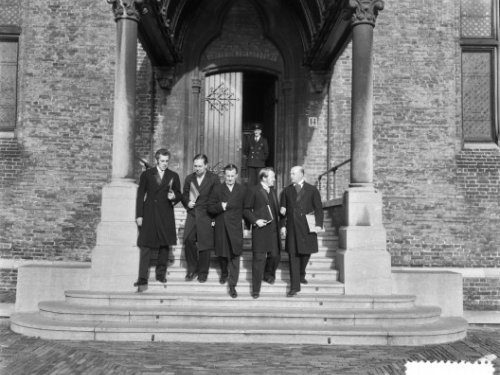Open up the trade register, argued Arjan El Fassed today in Dutch daily NRC Handelsblad.
The Dutch Chamber of Commerce (‘Kamer van Koophandel’ or in short KvK) recently took a lot of effort into advertising its own app. “Now all companies are always with you” said banner ads on Facebook and Twitter, “Direct access to register information from the trade register”. This is misleading. In the Netherlands you still have to pay charges and buy information from the trade register, per business or organisation. Those purchases are charged per search.

This year everyone in the UK will have free access to the information of registered businesses and organisations. The British Trade register, Companies House, stopped collecting money for each information request. Also the data of the French Chamber of Commerce will now be freely accessible. No copyrights rest on this data. Opening up public information will clear the way to all kinds of innovative apps and tools. This is just an example of how machine-readable data creates a new economy.
The government in the UK, France, but also in Belgium, Norway andDenmark, believe that the value of trade register data is not in asking for a contribution for every document, but in opening it up entirely. As a British top official said:
Disclosing this data makes the Companies House a transparent, efficient and effective place to do business.
In the Netherlands the Chamber of Commerce is financed by the Ministry of Economic Affairs with public funds and with the merits of the registration costs for businesses. This goes hand in hand with a lot of advertising. And like formerly in France and the UK everyone who requests information from the Trade register has to pay for these public data. It is time for the Netherlands to follow the example of its surrounding countries. While in those countries more and more governmental data is available as open data, the Netherlands is working on a change in the law that will actually be a step back.
Although the Netherlands Court of Audit has recently recommended the government to minimise the tariffs applied to the trade register, the Chamber of Commerce will reserve database rights with this law change, meaning an exclusive right to the data. And as local governments will be exempted from paying fees for the data, ordinary citizens and entrepreneurs will pay double.
The Chamber of Commerce monopolised the data from the trade register and has undertaken a variety of commercial activities that have nothing to do with their core business: the trade register. By monopolising public information the Chamber of Commerce disturbs the market. After all, other parties do not have access to the information of trade register.
The trade register law from 2007 needs an upgrade. As the basic companies register it should be authentic and it should be publicly accessible for everyone. Opening up the data leads to innovation, it strengthens the economy and improves trade.
Arjan El Fassed is ceo of the Open State Foundation. A different version appeared this week in the Dutch newspaper NRC Handelsblad.
